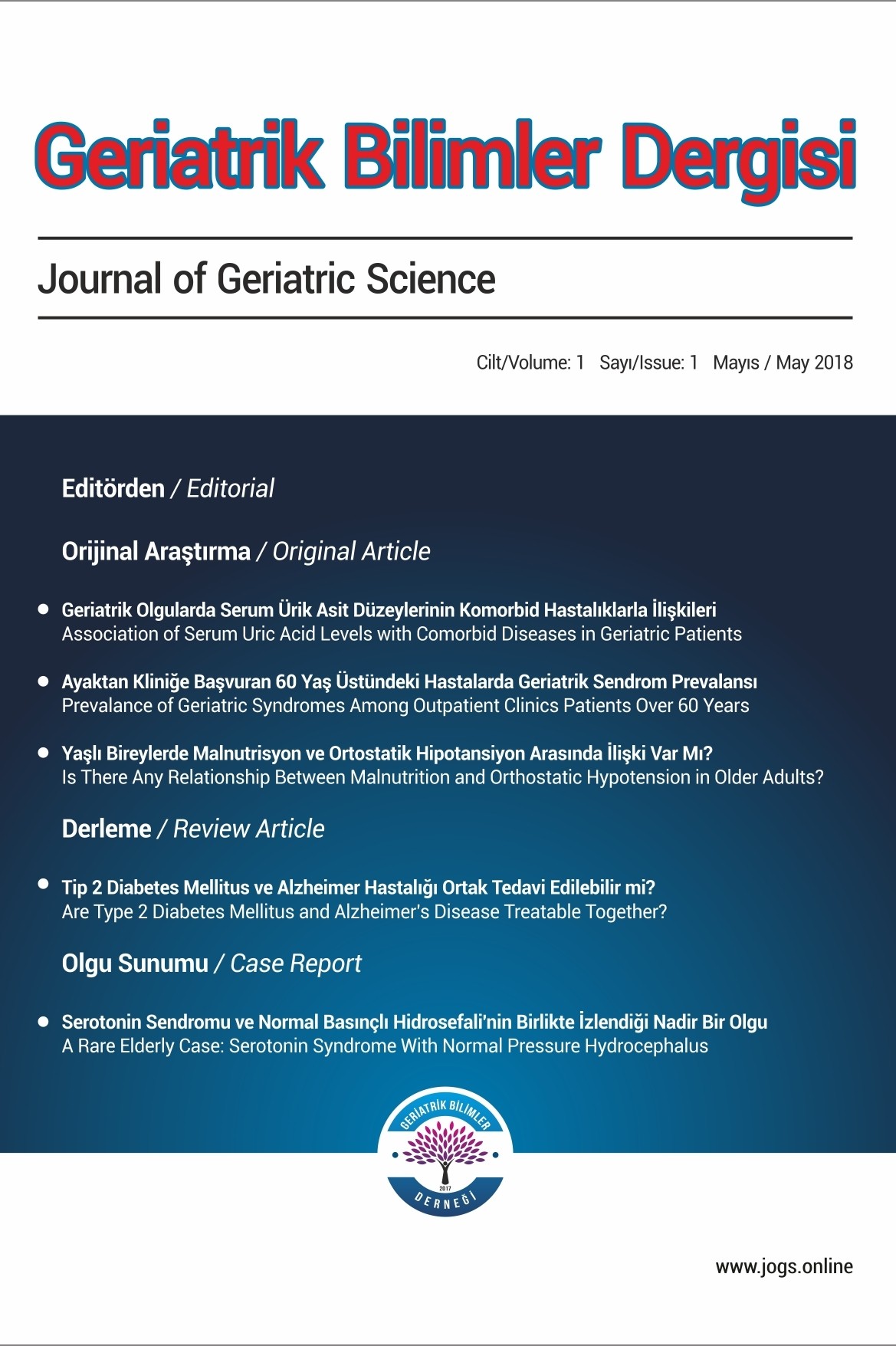
Geriatrik Bilimler Dergisi
Yazarlar: İ̇smail TUFAN, Orhan KOÇ, Barkın DERE, Faruk Yaşar GÜRDAL, Fatma Sıla AYAN, Özlem ÖZGÜR, Gülüşan Özgün BAŞIBÜYÜK, Hasan H BAŞIBÜYÜK
Konular:Tıp
DOI:10.47141/geriatrik.755856
Anahtar Kelimeler:Aging,Covid-19,Social isolation
Özet: Aim: This study aims to understand the reaction of the older population who experienced curfew restriction due to the covid-19 pandemic. Material and Methods: The sample of the study consisted of 120 participants randomly selected among students of 60+ Tazelenme University. A short questionnaire including eight questions was applied to the participants via telephone. Descriptive statistics of the data were presented and correlation analysis was applied to evaluate the relationship between the age of participants and their responds. Results: Although participants have a modest attitude towards the curfew, they think that staying at home would not prevent the spread of the virus (41%), decrease in virus-related older deaths (57%), and has resulted in the older adults to be perceived as “scapegoats”. Conclusions: To encourage their participation in social life, we conventionally say to older adults "be active", "go out", "joint society" and now we call them to "stay at home”. What is good for them under normal conditions, particularly close relation to society, appears to possess vital risks. In this situation, taking responsibility for the older adults in the context of the curfew can be considered as a "conscious isolation". However, this deliberate isolation should not be a new intention and instrument to move the older people away from the society. For a quality and healthy life that continues at home, precautions should be put in place.